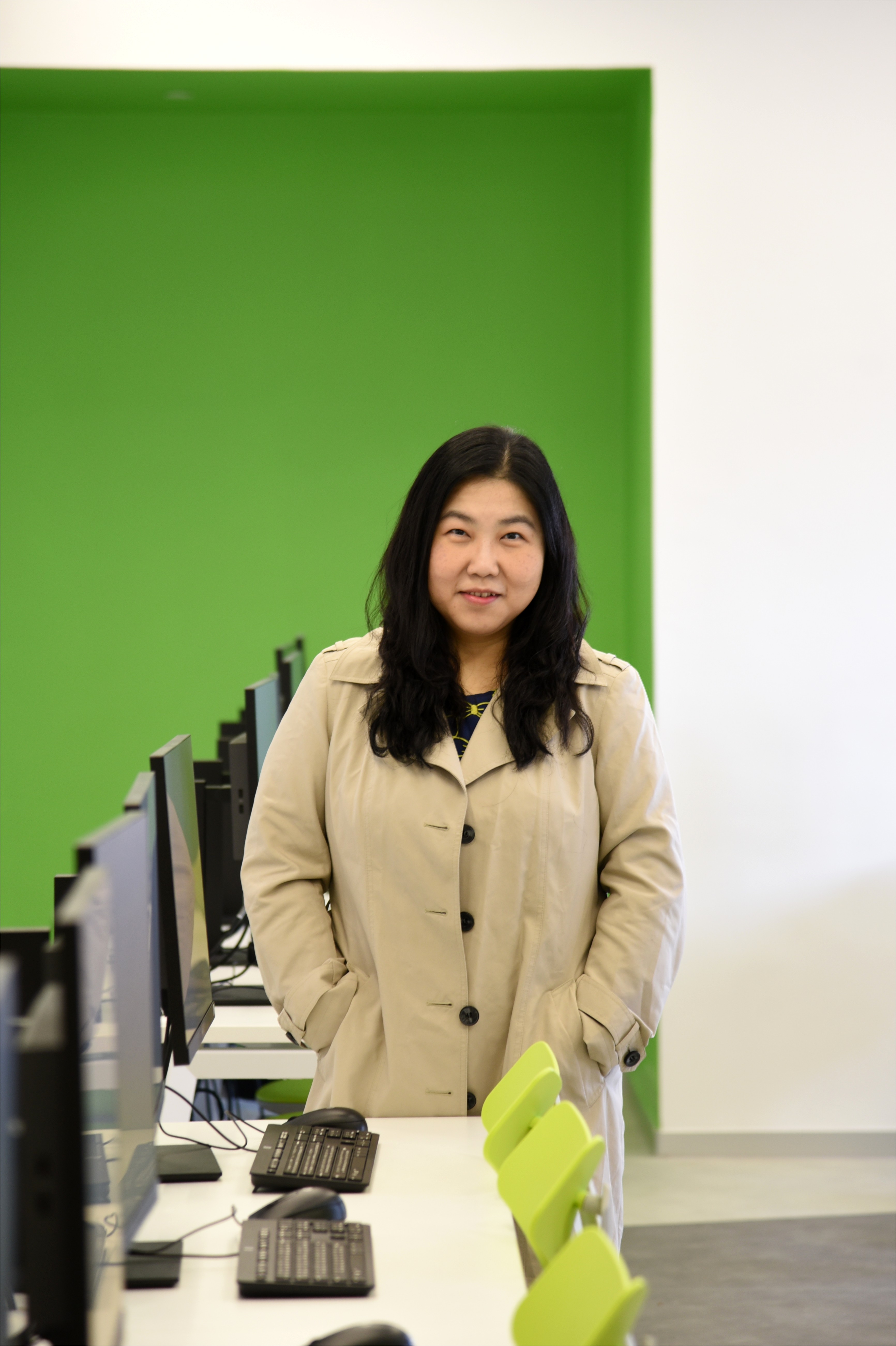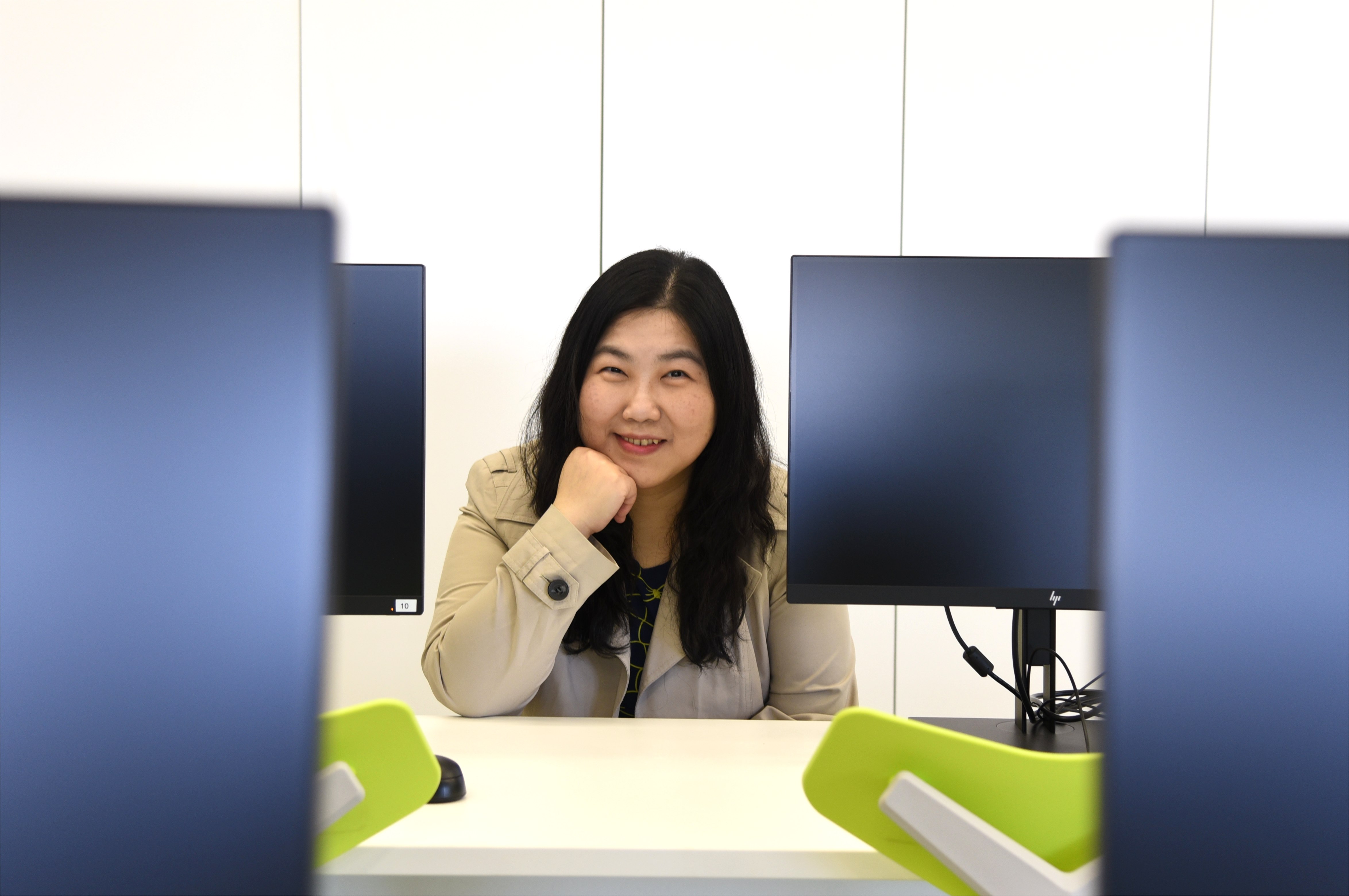Project name: Developing and Validating Cloud Intelligence Assessment System on Identification on Developmental Dyslexia of Chinese Language
Funding scheme: Faculty Development Scheme, Competitive Research Funding Schemes for the Local Self-financing Degree Sector (2020/2021), Research Grants Council
Funding awarded: HK$ 1,192,011
Principal Investigator: Dr. YUEN Connie Man-ching (Assistant Professor, Department of Applied Data Science)
Funding period: 24 months
Dr. YUEN told Shue Yan Newsletter that a large number of students are suffering from developmental dyslexia, which is a specific learning disability on reading and writing skills. Some recent studies pointed out that around 17% of the world’s population experience dyslexia.
Detecting dyslexia is the first step toward clinical or teaching intervention for the children with dyslexia. For suspected cases, children are referred to take dyslexia assessment at assessment centres. However, the waiting time for dyslexia assessment services is very long, the procedure of the assessment is very complicated, and the accuracy of the assessment might be biased by teachers.
According to Dr. YUEN, dyslexia of Chinese language is much more difficult to identify compared with English language. Learning traditional Chinese characters is more difficult than learning simplified Chinese characters. In literature, there exist a number of works on identifying dyslexia, but most of them focus on identifying dyslexia of simplified Chinese characters but not traditional Chinese characters. Most of the existing work focuses on paper-based assessment tests; only a few existing works focus on using machine learning approach. However, only a few classifiers are evaluated, the experimental results are preliminary, and the long processing time on using classifiers are not discussed.
By addressing the above problems, she will use cloud platform to run machine-learning based applications on identifying dyslexia of traditional Chinese characters to improve both prediction accuracy and processing time.

Dr. YUEN said she and her team will design, develop and verify an intelligent dyslexia assessment system on the cloud, and the project has six stages:
The first stage: Dr. YUEN will review literature on identifying dyslexia and get more information about the assessment of identifying dyslexia in order to define the set of words that can help to distinguish different degrees of dyslexia.
The second stage: Dr. YUEN will invite both dyslexic and non-dyslexic participants to write the same set of words, which can ensure the representativeness of characteristics of the selected Chinese characters, as the training data.
The third stage: Dr. YUEN will develop the proposed cloud computing assessment system based on the user requirement by using Amazon Web Services (AWS) Cloud. After a fully trained model is developed on AWS Cloud, the model is deployed to endpoint. She will integrate the model with the proposed assessment system and deploy the system on the infrastructure. Users can use the assessment system in the web interface.
The fourth stage: Dr. YUEN will evaluate the performance of the proposed system by inviting both dyslexic and non-dyslexic participants to test it to get the prediction accuracy on identifying dyslexia.
The fifth stage: Dr. YUEN will organize seminars and workshops at schools to introduce the proposed assessment systems to the public.
The sixth stage: She will write technical reports and research papers based on the findings in the field of artificial intelligence, machine learning, cloud computing, educational psychology, special education, speech and language.
According to Dr. YUEN, she will work with NGOs serving dyslexic people by forming an advisory committee to design the project and promote the public’s awareness of dyslexia.
“The assessment systems can be used by assessment centres, teachers and parents to have a simple and fast way to identify developmental dyslexia. I believe that the data collected by the proposed assessment system will be useful for researchers in analysing the performance of dyslexic people and understanding the way to identify dyslexic people effectively,” Dr. YUEN said.
Source: January 2021 Issue
